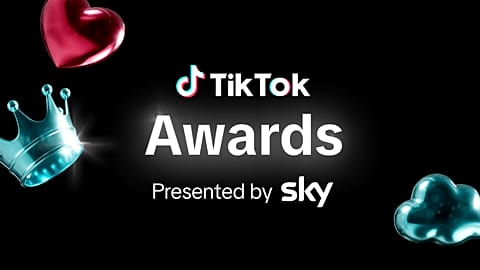Meet the TikTok influencers who are trying to help your career with advice on how to write a resume and negotiate a promotion or a raise.
TikTok might seem like an unlikely place to look for career advice but content creators offering just that are increasingly finding an audience.
 ADVERTISEMENT
ADVERTISEMENT
 ADVERTISEMENT
ADVERTISEMENT
The hashtag #careertok has reached nearly two billion views on the social media platform while the hashtag #corporate has some 11 billion views.
Career advice on TikTok ranges from humorous sketches of awkward professional moments to advice from seasoned professionals.
Chris Williams, Microsoft’s former vice president of human resources, is one influencer who has found an audience on the platform.
“When I left Microsoft several years ago, I began doing consulting work, (and) I realised I really wanted to get out a bunch of this information about navigating your career and getting ahead in the world and all those sorts of things,” Williams told Euronews Next.
After trying both blogging and podcasting, Williams decided to launch a TikTok channel during the pandemic that specialised in advice for people in upper management.
"There's very little advice and counsel to senior people in organisations, and I really wanted to do something about that," he said.
He enlisted the help of a content creator who had come to him for career advice, and who in exchange, coached him on making TikTok videos.
He now has more than 225,000 followers and his video “HR is not your friend” has been viewed over two million times.
TikTok as a side activity
Williams isn’t the only professional now turning to TikTok to give career advice.
French content creator Karine Trioullier, known on TikTok as Career Kueen, was also inspired during the COVID-19 lockdowns to start her social media platform.
“I had seen a lot of people lose their jobs without any support services. So, I thought about how to help them. I didn't really think it through, I grabbed my phone to advise people who needed to work straight away, especially remotely to earn a living,” Trioullier told Euronews Next.
Trioullier, who has a full-time job at a consulting company working with international firms, now has over 650,000 people following her on TikTok.
Another French-speaking content creator, Marie Christine Kameni, also started her channel as a side job.
The 26-year-old consultant, who is known as @lajobsetteuse on TikTok, now has over 50,000 followers.
“I thought that instead of helping one person a week, why not just put it on the networks and share my knowledge? And if it can help one, two or three people, then it will have been worth it,” said Kameni, who started advising peers when she was still a student in business school.
The content creators each have their own process for making the videos as well.
“Unlike many creators, my TikToks are scripted extremely carefully,” said Williams, who like spending time writing the videos. He then shoots 5 or 6 videos at a time before editing them.
“An individual TikTok, you know, only probably takes me 45 minutes, half an hour or 45 minutes to create, but it will be over several days,” he said.
Connecting with the audience
Kameni says her account is reaching French speakers across the globe, which she says may be due to using targeted hashtags to appear in African feeds.
“These are people who identify with me,” Kameni added, as she grew up in Senegal.
Williams is also reaching an international audience, which he thinks is related to the platform’s algorithm.
“TikTok has biased their algorithm to discovery. So when I look at who has seen my videos on TikTok, 85 per cent of people are not my followers,” he said.
The age range for the creators’ audiences is mostly people between the ages of 25 and 45 even though TikTok users are typically younger, but while Kameni and Trioullier's viewers tend to be women, Williams’ audience is mainly male.
Engaging with their audience of several tens of thousands of people has also offered them insights into current changes to the global work culture.
“There's no question in my mind that we have a trend toward working from home”, said Williams. Trioullier also said that this was a recurring question that she gets from her audience.
Other concerns people have are about getting promoted or how to negotiate a salary raise.
Professional impact
While these content creators may now have wide audiences, none of them wanted to advertise their TikTok accounts in their professional lives.
“For a very long time, I kept my TikTok completely separate. Because it's something I did on the side, I didn't necessarily want to highlight it,” said Kameni.
She changed her mind and ended up mentioning her activity as a content creator on her LinkedIn account and on her resume.
Trioullier had a similar change of heart. “I never saw my TikTok as something I could use in my work,” she said, explaining that she doesn’t monetise her videos.
However, with the number of requests coming from her community, Trioullier opened a slot for individual coaching at affordable prices with two weekly afternoons for people reaching out to her via social media.
Williams, who also offers coaching services, said that half of his prospects come from TikTok.
The three creators also acknowledged that TikTok isn’t just a place for them to give advice but also for them to learn from other people.
Trioullier said her TikTok community has changed how she views French people’s relationship with work.
Williams added that comments from his community challenged his views about turning on cameras during online meetings. Some research has shown it can cause fatigue, for instance.
“I had no idea that that was such a big deal, and it completely changed my perspective on what it means to have your camera on,” he said.
Kameni added: “It’s important to learn from people and I think it's also cool not to stick to your own opinion and to remain open”.

















